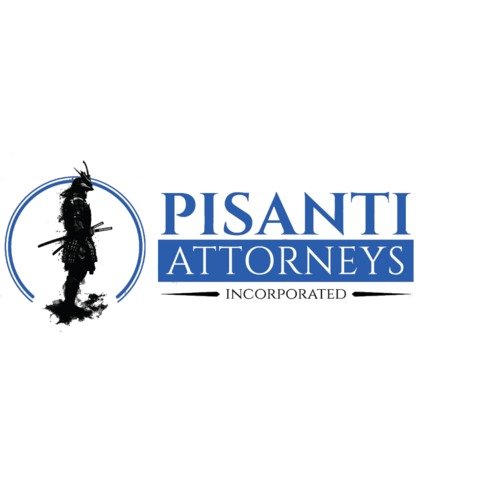Best Debt & Collection Lawyers in Germiston
Share your needs with us, get contacted by law firms.
Free. Takes 2 min.
List of the best lawyers in Germiston, South Africa
About Debt & Collection Law in Germiston, South Africa
Debt & Collection law in Germiston, South Africa, is designed to regulate the process of recovering outstanding debts and to protect both creditors and debtors. This field encompasses various legal processes including debt recovery, negotiation, debt restructuring, and litigation. Germiston, being part of the Gauteng province, adheres to both national legislation and provincial regulations that govern these practices. The National Credit Act and the Magistrates’ Court Act are among the primary statutes that oversee debt-related issues throughout the region.
Why You May Need a Lawyer
Seeking legal advice in the area of Debt & Collection can be crucial for several reasons. Individuals may require a lawyer's assistance to navigate the complexities of debt settlement negotiations or to defend against unjust collection practices. Businesses might need help enforcing payment through legal channels or restructuring debt obligations. In cases of insolvency, a lawyer can provide guidance on liquidation processes or business rescue mechanisms. Legal professionals play a vital role in ensuring both parties adhere to the letter of the law while protecting clients' rights and interests.
Local Laws Overview
The National Credit Act (NCA) is central to debt and collection matters; it sets out responsible lending practices and protects consumer rights by enforcing regulations on credit providers. The Act ensures transparency and fairness, particularly concerning terms of credit agreements and interest rates. The Magistrates’ Court Act provides procedures for debt recovery, stipulating how creditors can pursue debts through formal litigation. In Germiston, as with the rest of South Africa, compliance with these laws is essential to avoid legal repercussions and ensure fair proceedings.
Frequently Asked Questions
What should I do if I can't pay my debt?
If you find yourself unable to pay a debt, it is important to communicate with your creditor as soon as possible. Proposing a payment plan or settlement offer can often prevent further legal action.
What rights do I have if a debt collector contacts me?
You have the right to be treated fairly and respectfully. Debt collectors must comply with regulations that prevent harassment and ensure transparency. They are required to provide details of the debt and cannot intimidate or mislead you.
Can interest rates be adjusted on outstanding debts?
Interest rates can sometimes be negotiated, especially if you demonstrate a willingness to settle the debt. The NCA also sets maximum interest rates, preventing excessive charges.
What is a garnishee order?
A garnishee order allows a creditor to collect a portion of your salary directly from your employer to settle a debt. The court must approve this order, and specific processes must be followed.
When can creditors take legal action against debtors?
Legal action can be initiated when a debtor fails to meet agreed payment terms. Creditors typically must issue warnings and follow certain procedures before resorting to court action.
How does debt consolidation work?
Debt consolidation involves combining multiple debts into a single loan, often with reduced interest rates. This can simplify repayments and reduce financial pressure.
What is involved in the debt collection litigation process?
Litigation may involve filing a claim in court, presenting evidence, and obtaining a judgment. If successful, the court may issue orders to recover the debt through various means.
Can I negotiate a settlement for less than I owe?
Yes, negotiating a settlement is possible. Creditors might agree to accept less than the full amount owed in exchange for prompt payment, especially if there is a risk of non-recovery.
What can I do if contacted about a debt that isn't mine?
Inform the collection agency immediately if you are contacted about a debt you do not owe. Ensure you request proof of the debt and report the incident to relevant authorities if necessary.
How does insolvency affect personal liability?
Insolvency may result in certain assets being liquidated to repay creditors. Once declared insolvent, there are restrictions on your ability to incur new debt, and your personal liability may be limited for some debts.
Additional Resources
For further assistance, the following resources can be beneficial:
- National Credit Regulator (NCR) for guidance on credit and debt issues.
- Legal Aid South Africa for affordable legal assistance.
- South African Law Society for finding registered attorneys.
- Consumer Protection Act resources for understanding consumer rights.
Next Steps
If you need legal assistance in Debt & Collection matters, consider the following steps:
- Determine the nature and urgency of your legal issue.
- Consult with a local attorney experienced in debt and collections law.
- Consider contacting a debt counsellor to explore options for debt management.
- Gather all relevant documentation, such as contracts and correspondence with creditors, before meeting with your legal advisor.
A proactive approach can help effectively manage debt challenges and protect your rights.
Lawzana helps you find the best lawyers and law firms in Germiston through a curated and pre-screened list of qualified legal professionals. Our platform offers rankings and detailed profiles of attorneys and law firms, allowing you to compare based on practice areas, including Debt & Collection, experience, and client feedback.
Each profile includes a description of the firm's areas of practice, client reviews, team members and partners, year of establishment, spoken languages, office locations, contact information, social media presence, and any published articles or resources. Most firms on our platform speak English and are experienced in both local and international legal matters.
Get a quote from top-rated law firms in Germiston, South Africa — quickly, securely, and without unnecessary hassle.
Disclaimer:
The information provided on this page is for general informational purposes only and does not constitute legal advice. While we strive to ensure the accuracy and relevance of the content, legal information may change over time, and interpretations of the law can vary. You should always consult with a qualified legal professional for advice specific to your situation.
We disclaim all liability for actions taken or not taken based on the content of this page. If you believe any information is incorrect or outdated, please contact us, and we will review and update it where appropriate.









